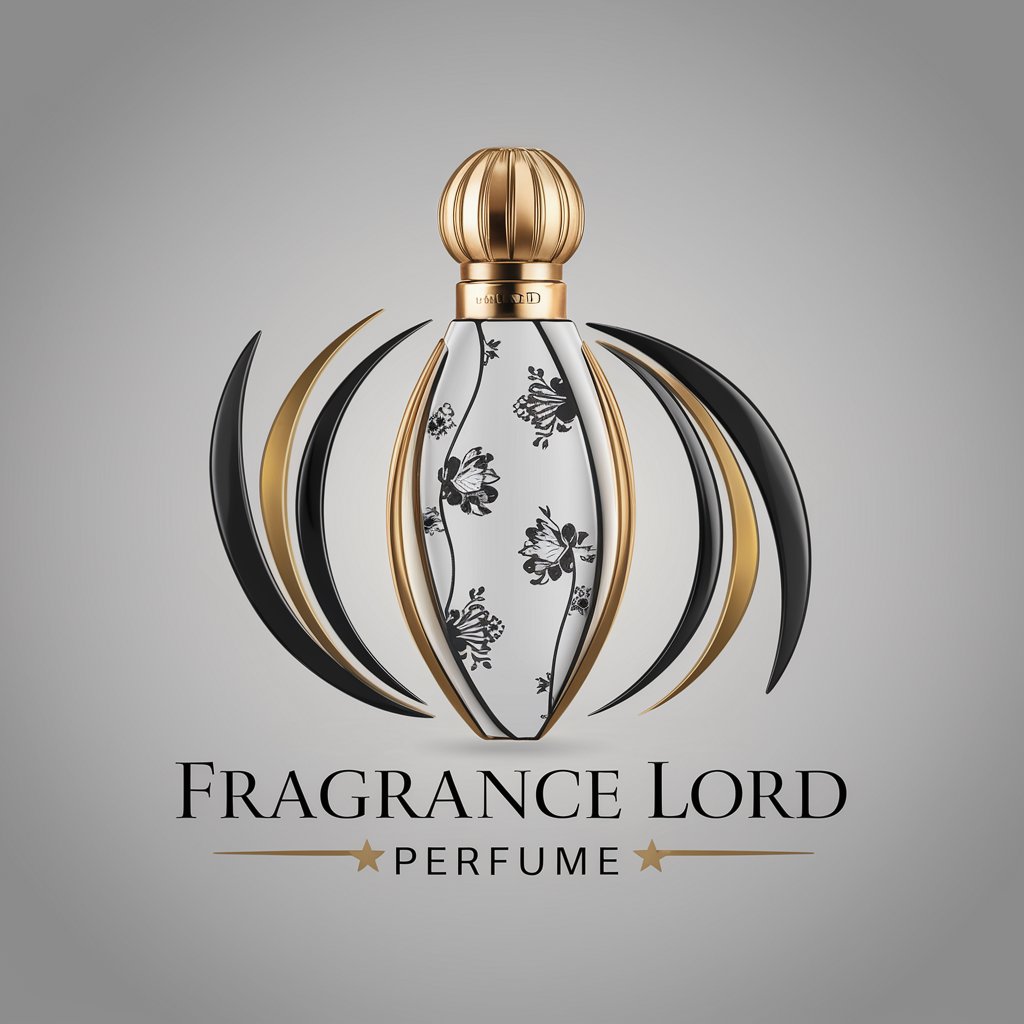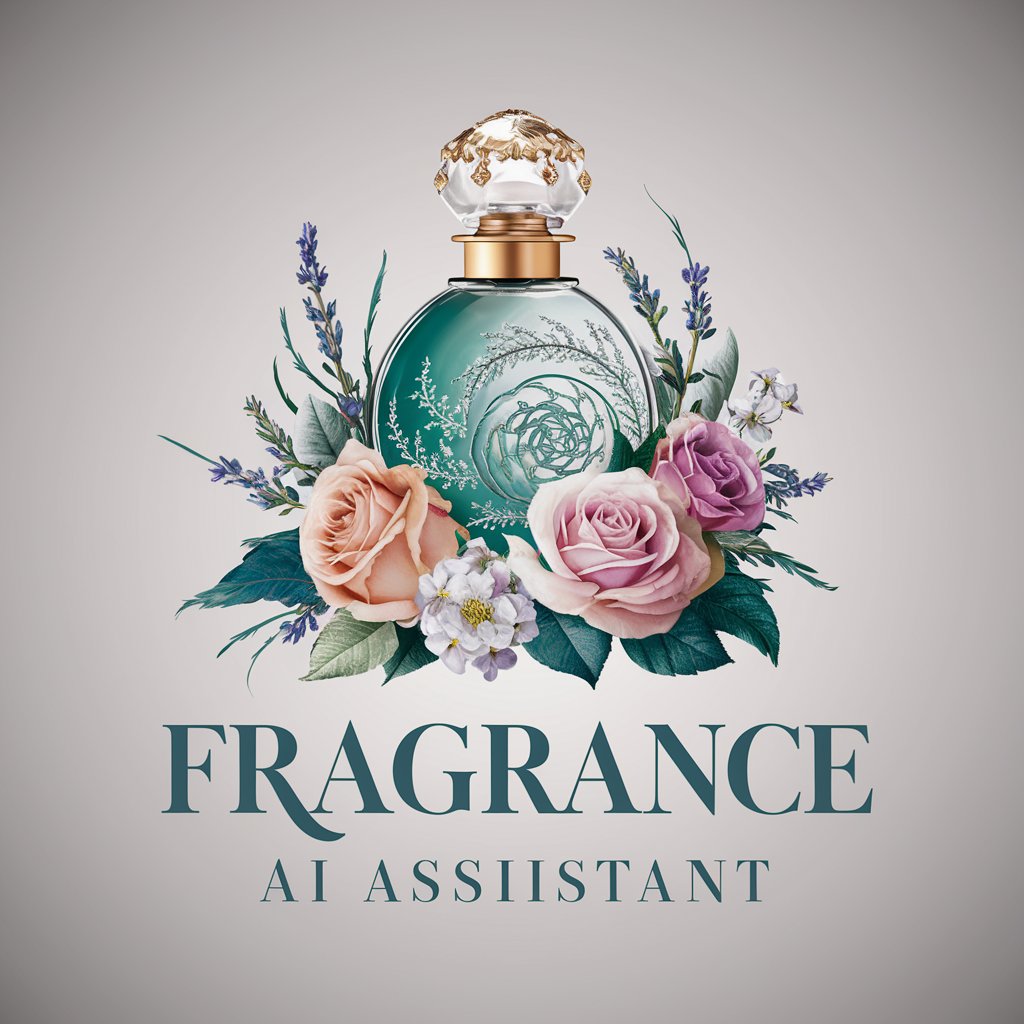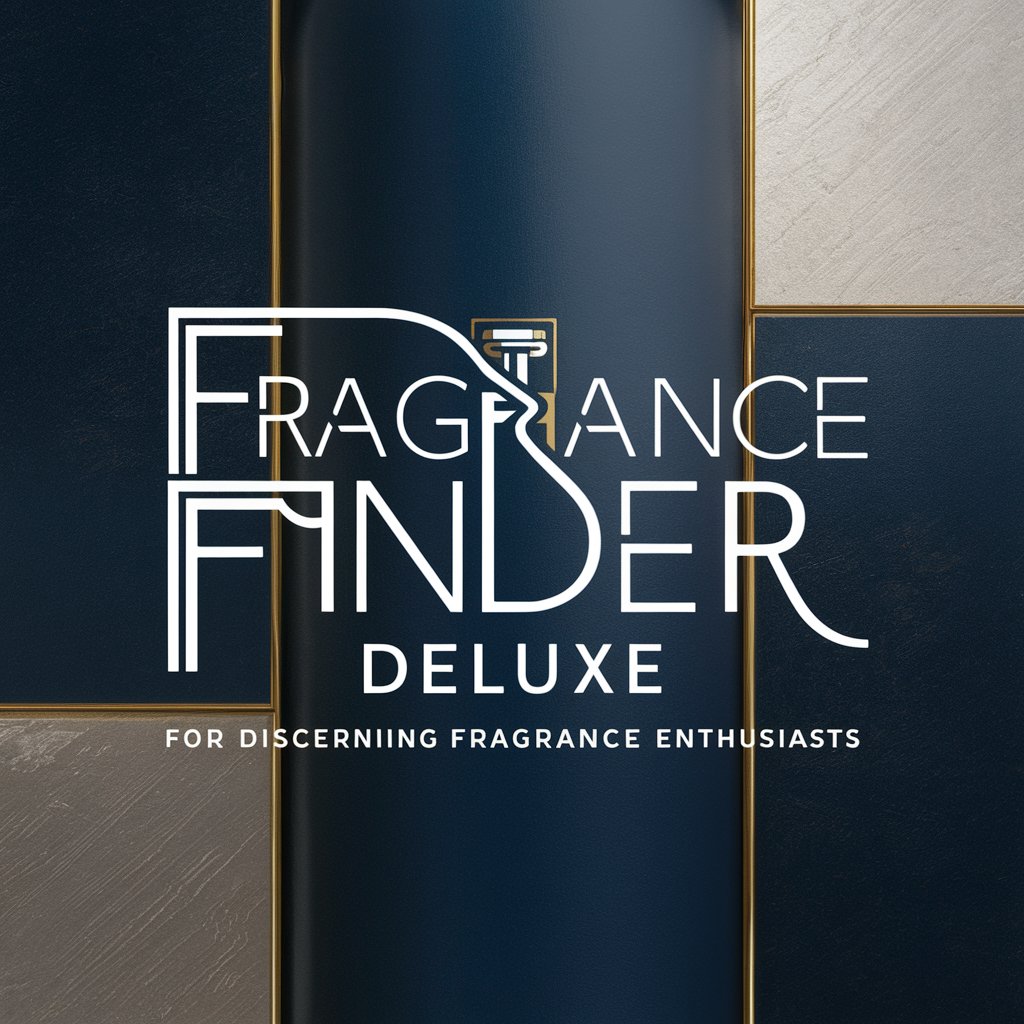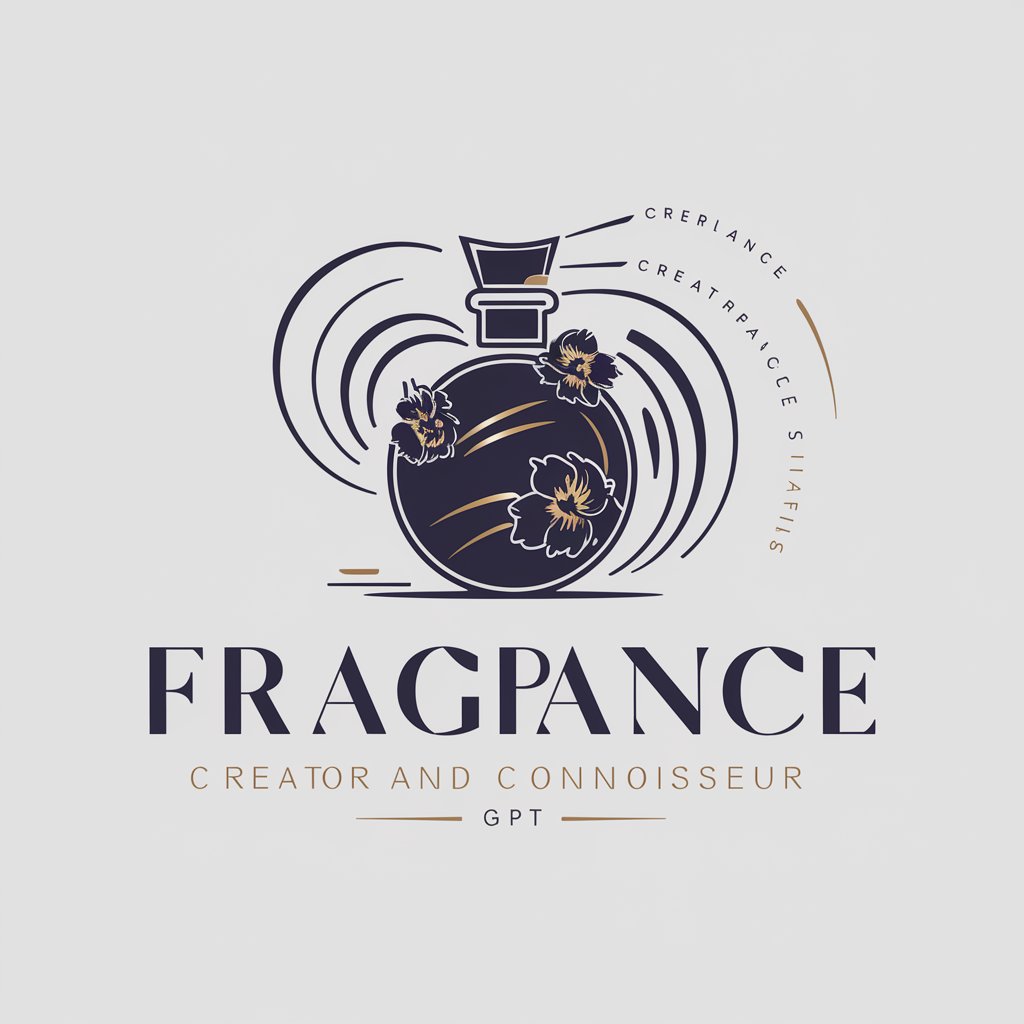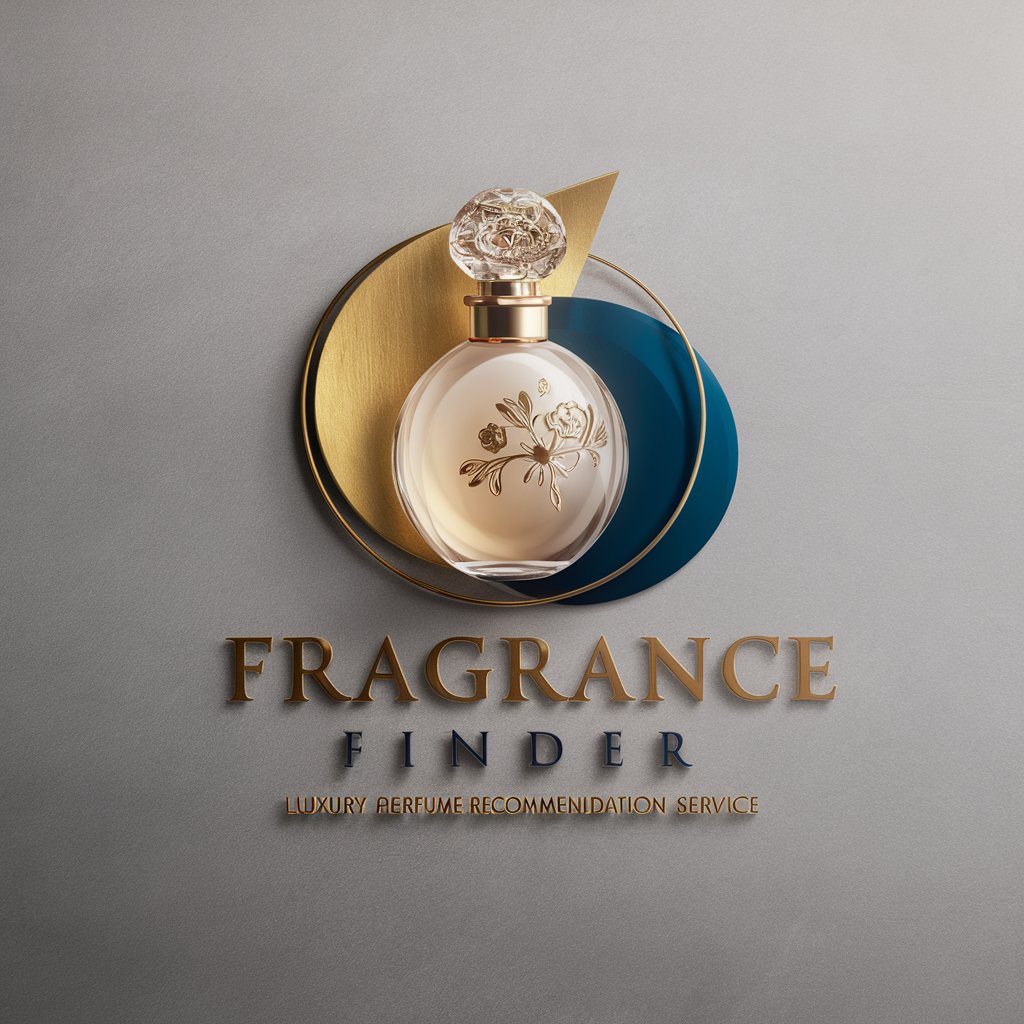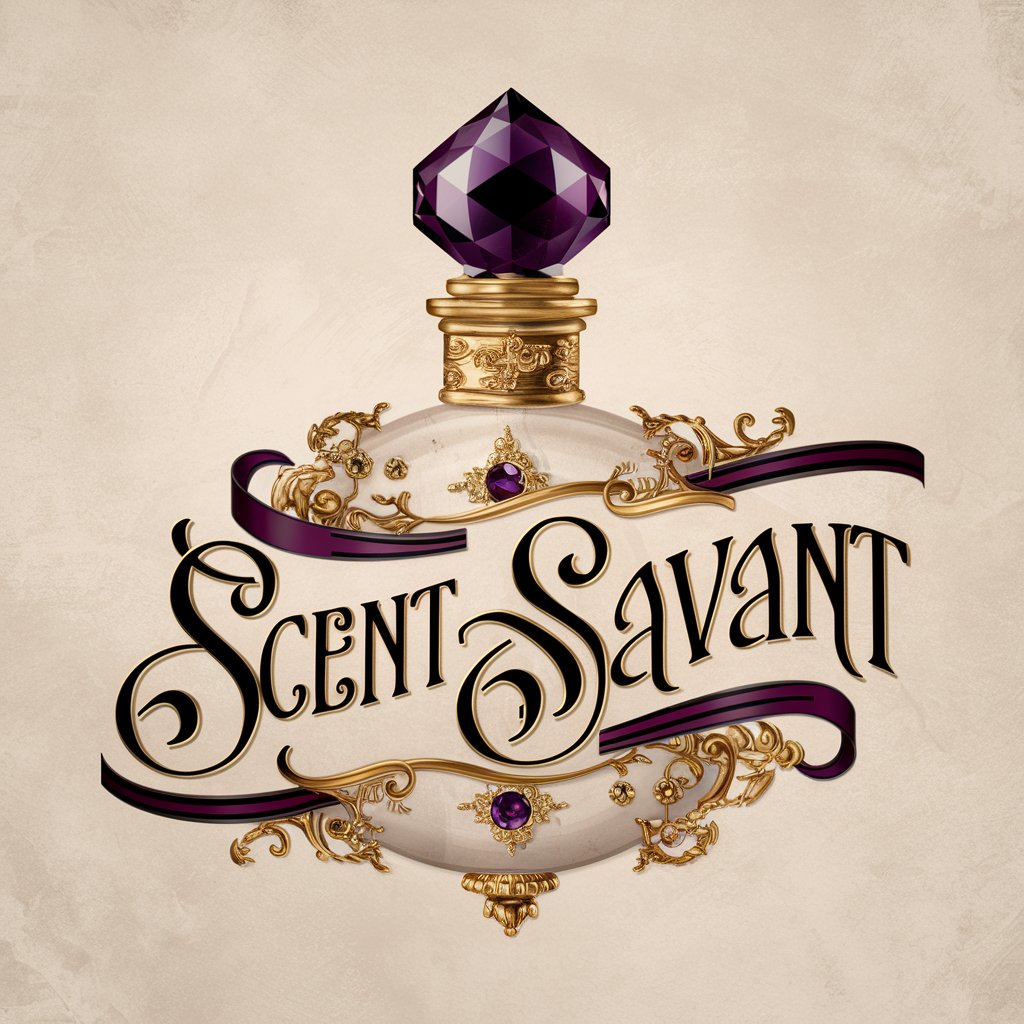
Fragrance - Fragrance Insights and Tips
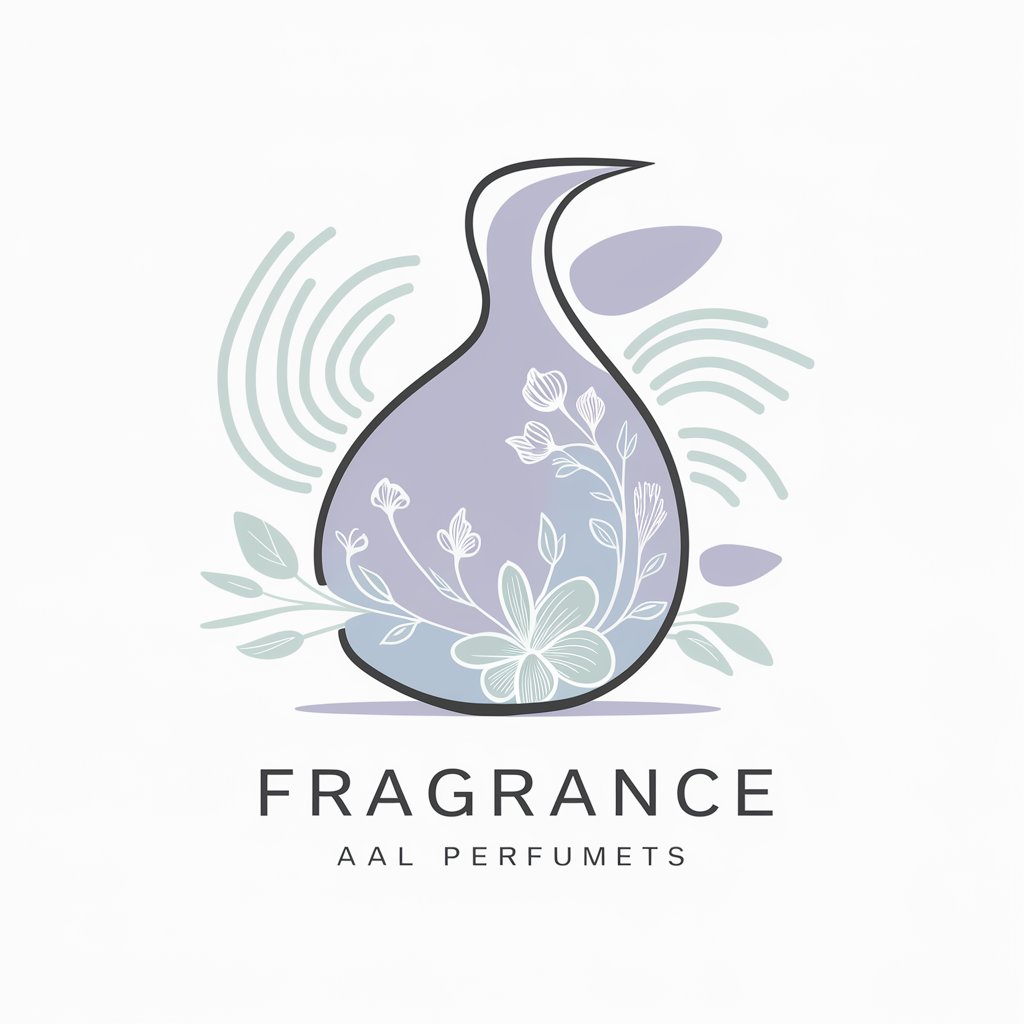
Welcome to the world of fragrances and scents!
Discover Scents, Enhance Well-being
Explain the scent profile of...
What are the key notes in...
How does aromatherapy benefit...
Describe the composition of...
Get Embed Code
Introduction to Fragrance
Fragrance, as a specialized GPT, is designed to serve as an expert guide in the world of scents, perfumes, and aromatherapy. Its creation stems from the need to provide in-depth knowledge, analysis, and insights into the complex and nuanced field of fragrances. This GPT is built to cater to a wide array of queries ranging from the composition and categorization of scents to the therapeutic effects of aromatherapy and the latest trends in the perfume industry. For example, it can dissect the layers of a perfume, explaining the harmony between top, middle, and base notes, and how they combine to create a unique scent profile. It can also guide users through the process of selecting a fragrance that aligns with their personal preferences or the occasion it is intended for. Powered by ChatGPT-4o。

Main Functions of Fragrance
Educating on Perfume Composition
Example
Explaining how perfumes are structured into top, middle, and base notes, and the role of each in the longevity and evolution of a scent.
Scenario
A user interested in creating their own perfume blend might seek guidance on how to balance these notes for a harmonious scent.
Scent Profile Analysis
Example
Offering detailed profiles of popular fragrances, including their scent families, notes, and the emotions or memories they might evoke.
Scenario
A customer looking to purchase a new perfume but overwhelmed by options could use this analysis to find a scent that suits their taste and lifestyle.
Aromatherapy and Well-being Advice
Example
Providing insights into how certain scents can influence mood, cognitive function, and overall health, backed by research and historical use.
Scenario
An individual experiencing stress or sleeplessness might seek recommendations on essential oils or blends to aid in relaxation and improve sleep quality.
Trend Forecasting in the Fragrance Industry
Example
Highlighting emerging trends in fragrance, such as the rise of gender-neutral perfumes or the use of sustainable, ethically sourced ingredients.
Scenario
A perfume brand developer looking for insights on the next big thing in fragrances to guide the creation of a new product line.
Ideal Users of Fragrance Services
Perfume Enthusiasts
Individuals with a passion for perfumery who seek to deepen their knowledge about different scents, historical significance of fragrances, and the art of perfume making.
Industry Professionals
Perfumers, brand developers, and marketing specialists within the fragrance industry looking for detailed insights on scent composition, market trends, and consumer preferences to inform product development and strategy.
Aromatherapy Practitioners and Enthusiasts
Those interested in the therapeutic aspects of scents, including professional aromatherapists and individuals looking to enhance their well-being through the use of essential oils and scent-based practices.
Consumers Seeking Personalized Fragrance Advice
People looking for assistance in selecting a fragrance that suits their personal style, occasion, or as a gift, benefiting from a tailored, informative approach to fragrance selection.

How to Use Fragrance
Start Your Journey
Initiate your exploration by visiting yeschat.ai for a complimentary trial, bypassing the need for login or ChatGPT Plus subscription.
Identify Preferences
Assess your scent preferences or desired outcomes (e.g., relaxation, focus enhancement) to guide your selection of fragrance types or aromatherapy options.
Learn Application Techniques
Familiarize yourself with proper application methods for perfumes (pulse points, avoiding clothing) and aromatherapy practices (diffusers, topical application with carrier oils).
Explore Varieties
Experiment with different fragrance families (floral, woody, citrus, etc.) and concentrations (eau de parfum, eau de toilette) to understand their longevity and sillage.
Observe Etiquette
Apply fragrances in moderation, considering the setting and those around you, to ensure your scent is appreciated and not overwhelming.
Try other advanced and practical GPTs
SEO Ninja
Elevate Your SEO with AI Expertise

Stratège TFT
Elevate Your TFT Game with AI-Powered Strategies
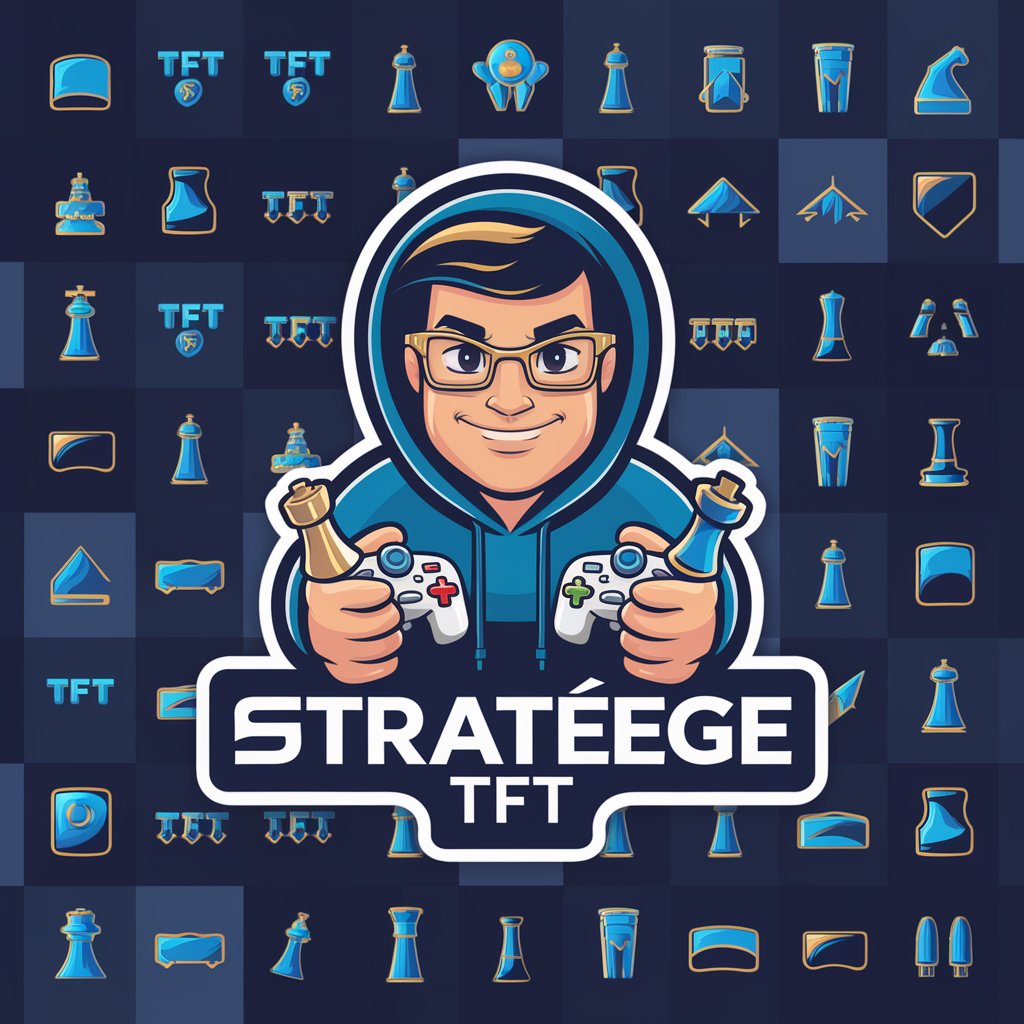
Bicho curioso
Empowering In-depth Analysis with AI
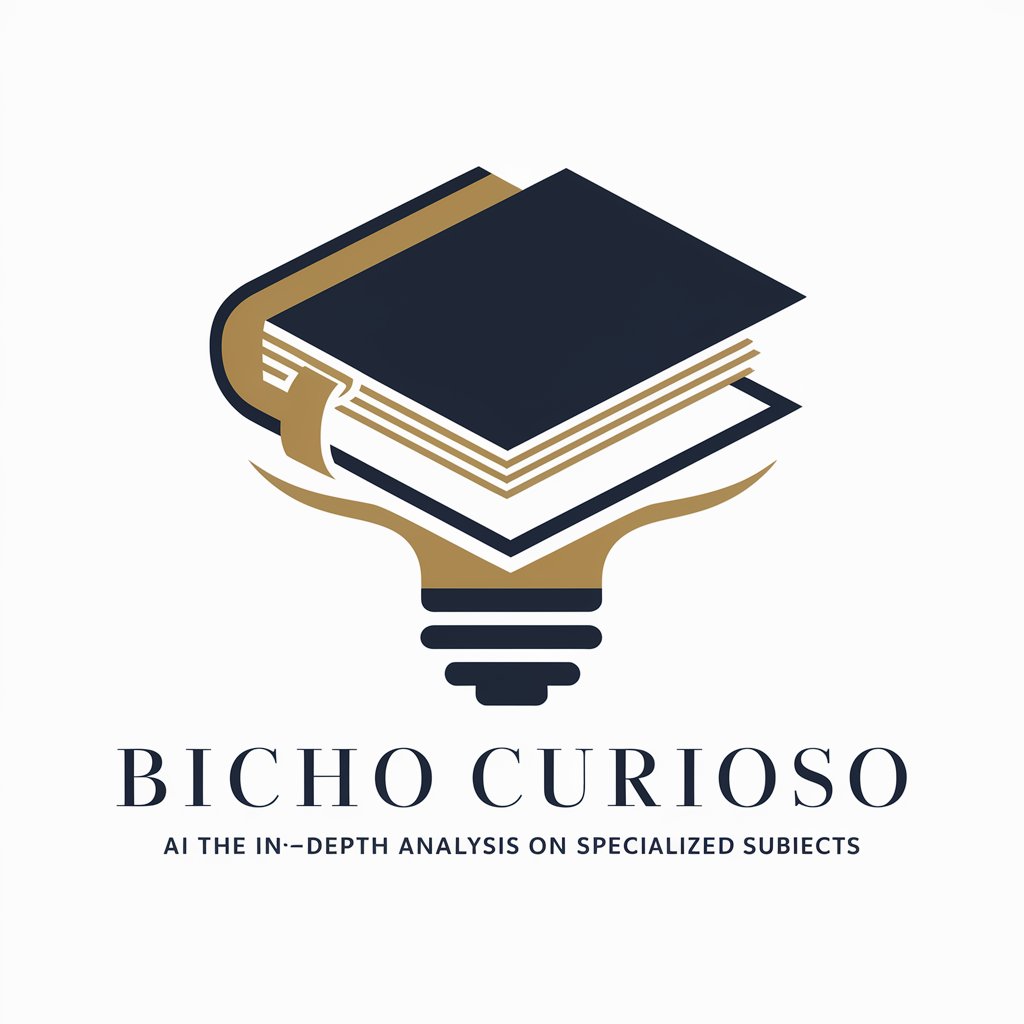
Coffee Navigator
Your Personalized Coffee Journey, Enhanced by AI
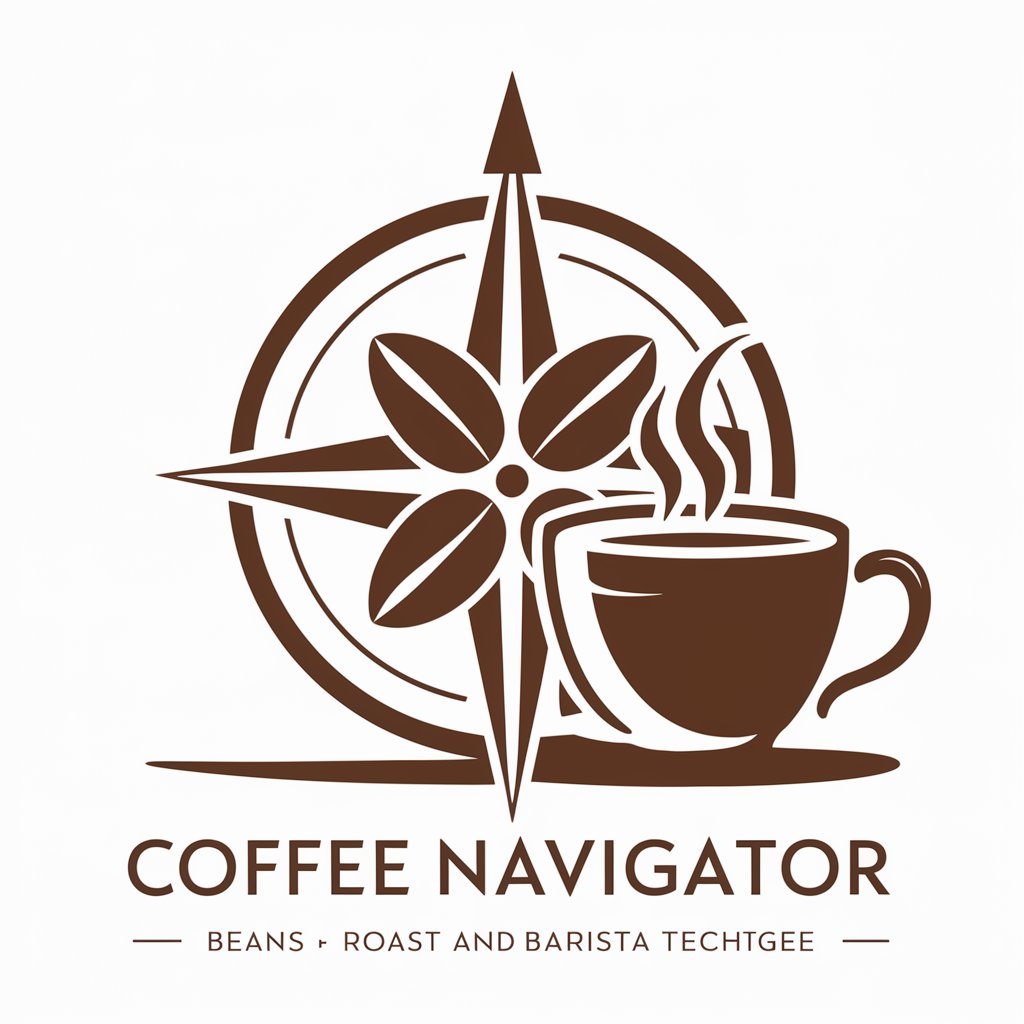
Bookkeeping
AI-driven bookkeeping for simplified finances

Footlong
Savor the AI-crafted Sandwich Wisdom

Article Reimaginer
Revolutionize Your Text with AI Creativity

Translator IPM
Precision in Engineering Language Translation

Masquerade Navigator
Craft Your Vampire Saga
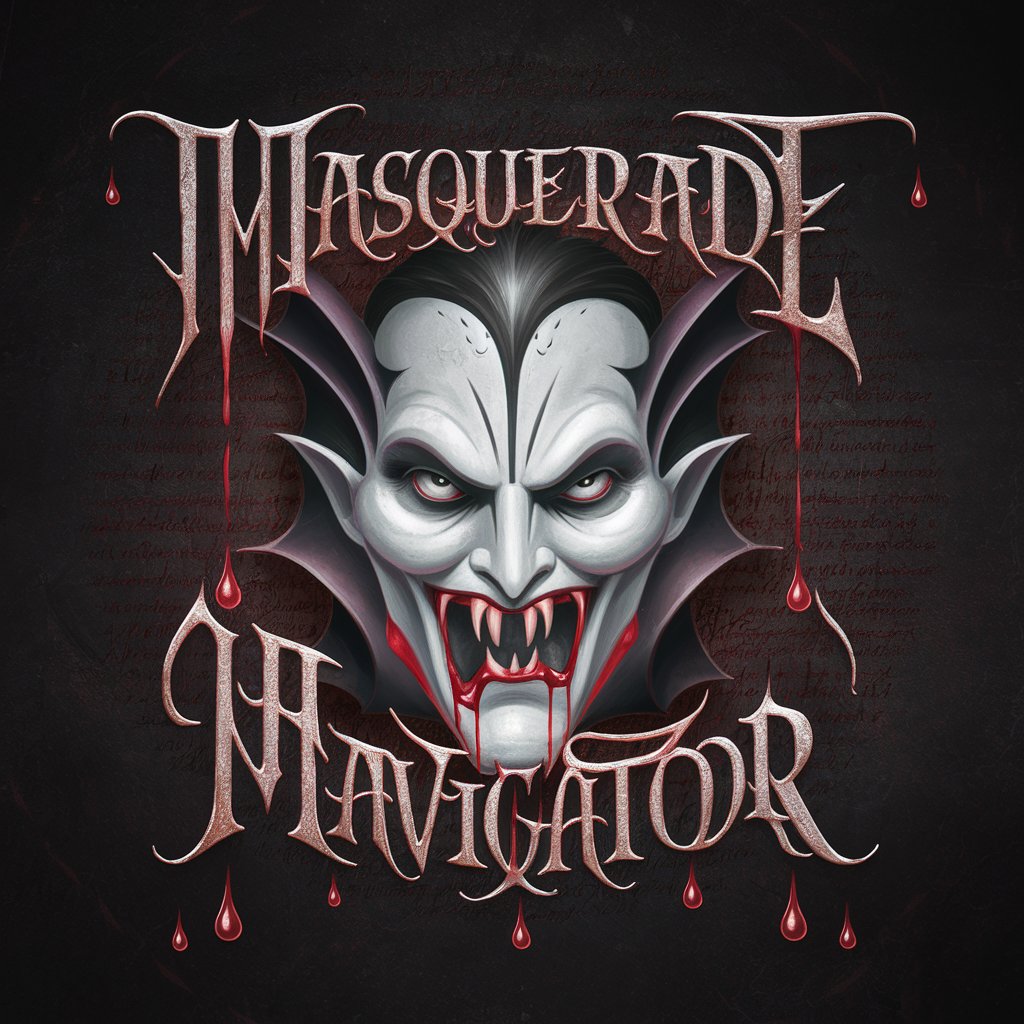
Fyrfeed: Storyline generator
Craft Your Storyline with AI

콘텐츠 기획자
Craft Your Content with AI

Générateur de persona
Crafting Detailed Personas with AI Precision

Frequently Asked Questions about Fragrance
What is the difference between Eau de Parfum and Eau de Toilette?
Eau de Parfum contains a higher concentration of fragrance oils (typically 15-20%) compared to Eau de Toilette (5-15%), resulting in longer-lasting scent and higher sillage.
How can I make my fragrance last longer?
To enhance longevity, apply fragrance to moisturized skin, focus on pulse points, and avoid rubbing the applied areas. Layering products from the same fragrance line can also prolong scent.
What are fragrance notes?
Fragrance notes are the individual scent components that together create a perfume's overall aroma. They are classified into top (initial impression), middle (heart of the perfume), and base (lasting foundation) notes.
Can fragrances expire?
Yes, fragrances can expire, typically lasting 3-5 years from production. Signs of expiration include color changes, separation, or a noticeable alteration in scent.
How does aromatherapy work?
Aromatherapy utilizes natural plant extracts and essential oils to promote physical and emotional well-being. It works through inhalation or skin absorption, influencing the limbic system, which affects mood and emotions.
